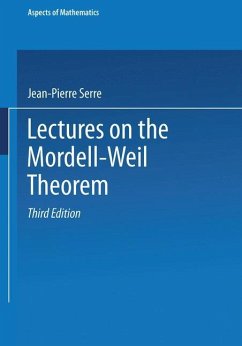
Adiabatic Theorem
Versandkostenfrei!
Versandfertig in 6-10 Tagen
23,99 €
inkl. MwSt.

PAYBACK Punkte
12 °P sammeln!
High Quality Content by WIKIPEDIA articles! The adiabatic theorem is an important concept in quantum mechanics. Its original form, due to Max Born and Vladimir Fock (1928),can be stated as follows: A physical system remains in its instantaneous eigenstate if a given perturbation is acting on it slowly enough and if there is a gap between the eigenvalue and the rest of the Hamiltonian's spectrum. It may not be immediately clear from this ormulation but the adiabatic theorem is, in fact, an extremely intuitive concept. Simply stated, a quantum mechanical system subjected to gradually changing ex...
High Quality Content by WIKIPEDIA articles! The adiabatic theorem is an important concept in quantum mechanics. Its original form, due to Max Born and Vladimir Fock (1928),can be stated as follows: A physical system remains in its instantaneous eigenstate if a given perturbation is acting on it slowly enough and if there is a gap between the eigenvalue and the rest of the Hamiltonian's spectrum. It may not be immediately clear from this ormulation but the adiabatic theorem is, in fact, an extremely intuitive concept. Simply stated, a quantum mechanical system subjected to gradually changing external conditions can adapt its functional form, while in the case of rapidly varying conditions, there is no time for the functional form of the state to adapt, so the probability density remains unchanged.The consequences of this apparently simple result are many, varied and extremely subtle. In order to make this clear we will begin with a fairly qualitative description, followed by a series of example systems, before undertaking a more rigorous analysis. Finally we will look at techniques used for adiabaticity calculations.












